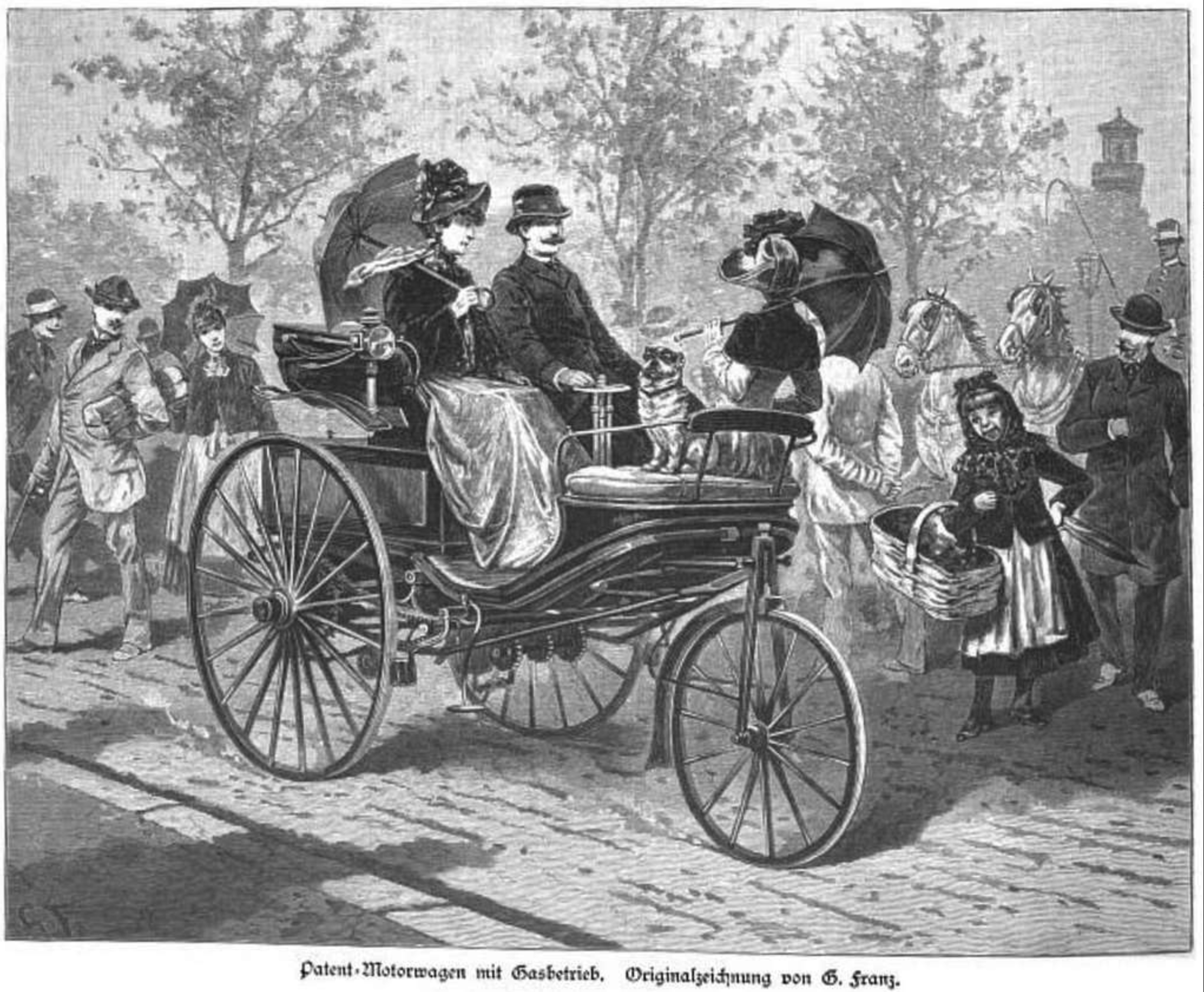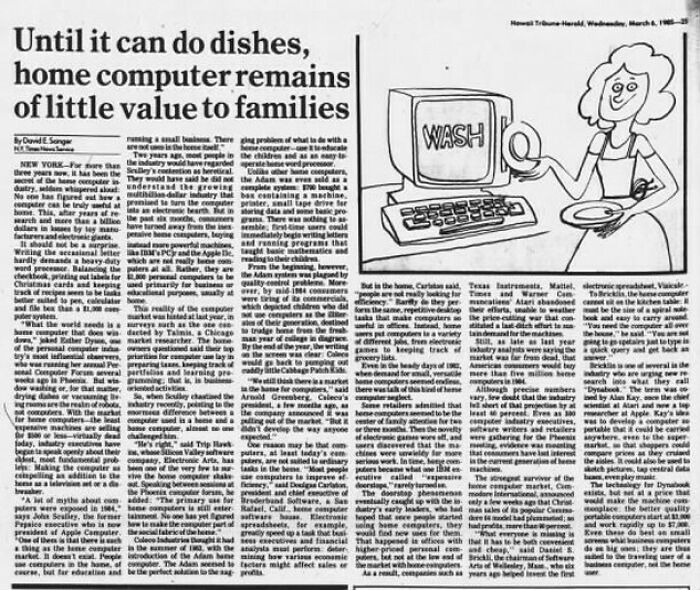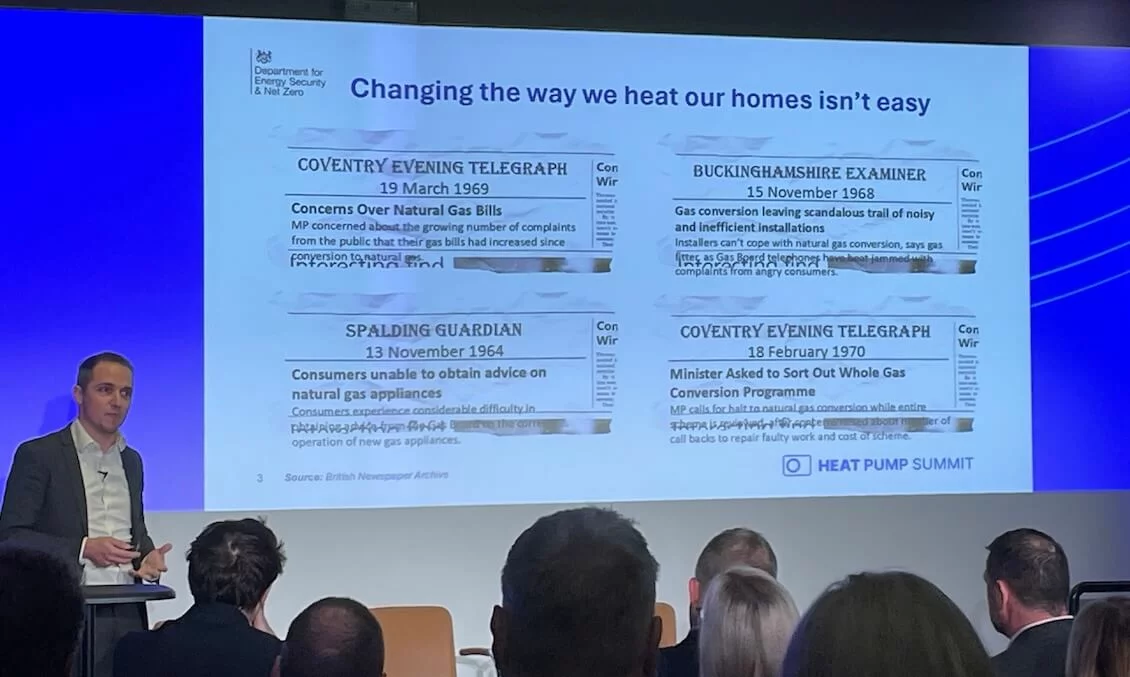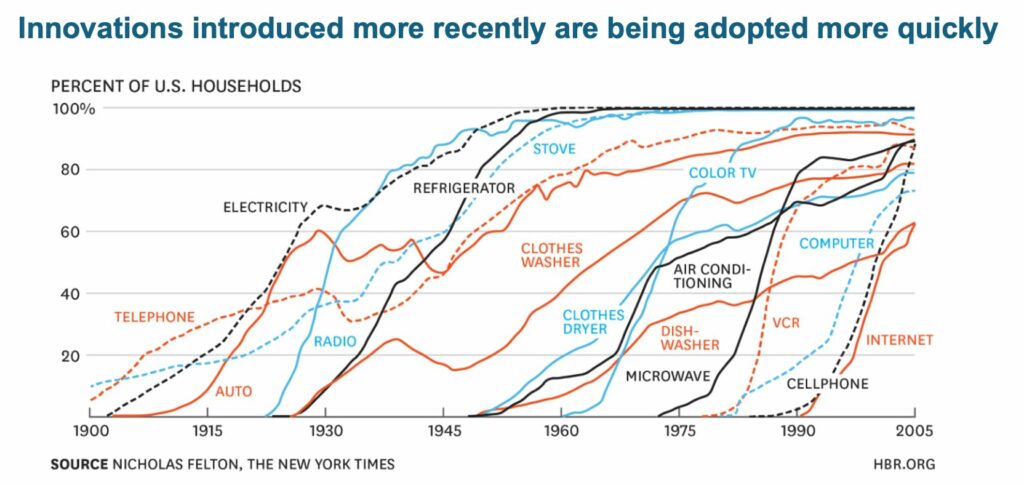
From panic to progress: why we’ve always feared the new
Let’s face it: we humans aren’t always great with new ideas. Change shows up on the doorstep, and we’re quick to yell, “Not today, thanks!” Whether it’s a new gadget, a wild invention, or a better way of doing things, history has proven we like our comfort zones. But here’s the twist: the things we resist often end up being the stuff we can’t imagine life without. Funny how that works, isn’t it?
Take transport, for example. When cars first rolled onto the scene, people clung to their horses like life rafts. After all, horses were dependable, had a certain charisma, and didn’t run out of fuel. Early cars, on the other hand, were noisy, unreliable, and prone to terrifying grandmas on cobblestone streets (and we’re going through the same shift with the introduction of EV cars).

Steam trains got similar pushback – critics swore they’d scare cows, wreck the countryside, and possibly combust humans who dared to ride them. And bicycles? They were seen as frivolous, dangerous, and, for women, downright scandalous. Heaven forbid a lady pedalled her way to independence!
But this resistance to change isn’t just modern – it goes back centuries. Take photography, for example. When the camera was invented, some people believed it would steal their soul. Fast forward to the 1970s, and Steve Sasson invented digital photography, only for management to shrug and say, “Nah, no one will want this.” Whoops.
Of course, we can’t forget the funniest take of all: a 1960s article that declared, “If it can’t do dishes, a home computer has little value to families.” Little did they know how much we’d rely on those “useless” computers for everything from work to streaming cat videos.

But it’s not just about getting from A to B. Energy innovations have faced their fair share of eye-rolls too. When gas lighting began replacing oil lamps and fireplaces, people worried their homes would turn into ticking time bombs. Later, electricity had critics clutching their pearls, convinced it would cause laziness or moral decay (or both). If only they’d known we’d one day use it to charge phones while binge-watching Bake Off.
And don’t get us started on communication technology. When the telephone arrived, people scoffed: “Why talk into a machine when I can just shout across the street?” Television? Clearly going to ruin society (spoiler: it didn’t). And the internet? Skeptics thought it was a glorified library at best, a passing fad at worst. Now, you’re reading this post online, while others are facetiming family dinners, and debating which streaming service to watch today.
Which brings us to the present-day hot topic: home energy. But before we even start talking about solar panels and wind turbines, let’s take a quick trip back to the 1960s – a time when the battle of the fuels dominated headlines.

Electric vs. gas, gas vs. oil, electric vs. oil – utility companies were locked in a fierce competition to shape the heating market. Gas ultimately won out – after intial safety concerns – thanks in part to the discovery of cheap, abundant North Sea gas in the 1960s, which transformed the UK’s energy landscape and made gas a reliable and cost-effective choice for households.
Fast forward to today, and we’ve really been here before. Renewable energy sources like solar panels and wind turbines are quietly revolutionising the way we power our lives – but not without the usual doubts. Heat pumps? Insulation upgrades? People still ask questions, squinting at installation costs and wondering if it’s all worth the effort.
The good news? Just like EV cars, renewable energy, and mobile phones, these upgrades are here to make life easier, greener, and more comfortable – once we give them a chance.
So, as we step into 2025, maybe it’s time to look at change a little differently. After all, we’ve traded horses for horsepower, candles for lightbulbs, and shouting across the street for Wi-Fi calls. Who’s to say heat pumps and solar panels won’t be the next thing we can’t imagine living without?
The future’s looking pretty bright – and warm – for those ready to embrace it. And here’s the thing: change is already happening, whether we notice it or not. Did you know there are over 190 million heat pumps quietly heating homes around the world? Or that renewable energy has become one of the fastest-growing industries globally?
By being part of the change, you’re not just future-proofing your home – you’re joining a movement that’s making life greener, cleaner, and more comfortable for everyone. So, what do you think? Know someone still holding onto their metaphorical horse reins? Share this with them – the future’s bright, and it’s time to let go.
Interesting references
Recent innovations are being adopted faster, reflecting a growing readiness to embrace energy-saving upgrades that enhance comfort, efficiency, and sustainability.

Story of change: The Great Switch – lessons from when 14 million homes and businesses changed fuel in less than a decade
BBC: What central heating has done for us
The 1960s: The Battle Of The Heating Fuels
People Had To Be Convinced of the Usefulness of Electricity
Wired Fears: Electricity and Technophobia in the Nineteenth Century
